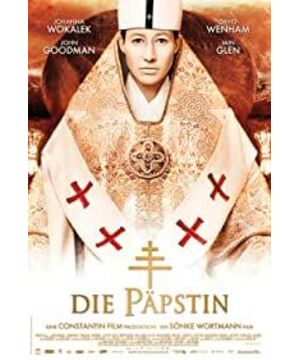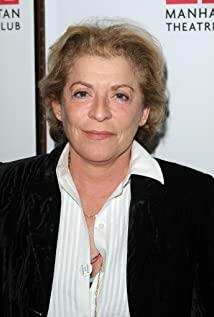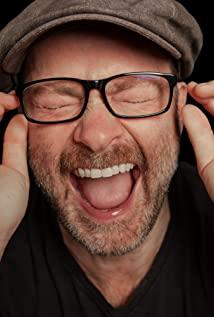Author:
Ms. Xie Yaoling, the translator of Wang Shuya's novels, is a teacher at Soochow University. The school motto of Soochow is a sentence written by Sun Yat-sen to Chiang Kai-shek, "Cultivating the righteousness of the world, and perfecting the law and the modern." One Christian president, write to the next Christian president. But the connotation of words has nothing to do with their beliefs. Just like a Marxist leader writing to the next Marxist leader, saying, "You do things, I can rest assured", it sounds very different from what you believe.
If there is righteousness in the heaven and the earth, it must come from outside the heaven and the earth and pass through the heaven and the earth. How can it be raised from the belly. So Zhuangzi said "nourish the qi", and the Bible says "breath." Cultivate yourself to be self-respectful and inferior in self-esteem. Just like the balloon I bought for Xiaoshua, if you don't blow it, it will always be deflated.
There is no perfect person on the earth in ancient and modern times. In Taiwan’s elementary school textbooks, Tian Heng’s five hundred heroes are called "five hundred perfect people." Yan Xishan left the mainland, leaving behind five hundred people, all of whom were hiding poisons, to die for the party-state. Chiang Kai-shek led hundreds of civil and military officials to pay homage to them, and also called them "Taiyuan Five Hundred Perfect People".
So I took a look at the school motto of Soochow. The trend of mankind is becoming more and more conceited. The tragedy of mankind always overestimates the immersive generation. All moral efforts are like writing "Nurturing the Heaven and the Earth" on a balloon. All material accumulations seem to say in a tomb, "Faith is perfect."
On the first Easter morning, the angel said a kind and heartfelt sarcasm. Several women saw that Jesus' tomb was empty, with linen cloth set aside. They looked around and walked through the cemetery. The angel appeared in white clothes and said to them, "Ignorant people, why are you looking for alive among the dead?"
This sentence often wakes me up. Saints, greats, giants, and perfect people are actually dead. Whenever people set a goal and fabricate a kind of doctrine, they start to open up history and "find the living from the dead" time and time again. Therefore, the square is still full of portraits of dead people.
In the Bible, "wind" is used as a metaphor for the Holy Spirit. Use "breathing" to metaphorically put the form of the soul, which is the benevolence and holiness of the truth, into the flesh and blood of man. Blowing is a vivid depiction of "created". Especially after the fall of mankind, Jesus said that the rebirth of the soul is like being blown by the wind. So salvation, for him, is a commitment on the cross; for us, it is a romance in the wind. The Bible calls man’s way of salvation the second creation of man. Blowing is also a vivid depiction of "new creation".
If a person admits, he is pitiful. Turn around and stand against the wind. What is blown in is spiritual energy, and what is cultivated is blood energy. The object of faith is the resurrected Savior. And moral models are dead men in the underworld.
To learn from Lei Feng is to find the living from the dead. The ideal of the rule of three generations is to find the living from the dead. It's not that Confucius is not born in the sky, and the ages are like a long night. But the sky does not regenerate Confucius, and the ages are like a long night. Because the human disease is aplastic anemia.
The dead have no authority to pass on his greatness to the living. So Lei Feng is Lei Feng, and you are still you. Morality, unlike disease can be contagious. Morality is like life in essence, life is not contagious, and life is born life. Only life can give birth to life. Only the living can save the living.
This is why if morality is not based on faith, morality is a curse. Saving people by faith is saving one by one. Moral killing is killing one by one. Faith is life, just like retail, you have to speak alone and reach out by yourself; morality is the standard, just like wholesale, the same batch of goods has only one serial number. You are condemned in morals, you are chosen in faith.
Once, Xiao Shuya and I went out and saw an old man hunched over, looking for something in the trash can. I asked Xiao Shuya to take five yuan. The first thing I gave birth to was pity for him. But this kind of mercy is only in a moral sense. Including my charity, they all tempted me and told me to give birth to a secret pride in my heart.
But the second thing I gave birth to was pity for myself. When I compare myself with that old man, I am a moralist. The so-called moral life is a life in comparison, so to a large extent, morality equals moral superiority. It's just that when I didn't compare myself with the old man, but compared myself with the rubbish that the old man picked up, my nose suddenly became sore, and I almost cried.
Why should I send him money. Not because I don’t need to be like him, picking things from the trash can; it’s because I am what God picked back from the trash. I can't "nourish the heaven and the earth"; among my kind, there is no perfect person from the past and the present that can imitate. After all, I can't live in noble morals. If I am not chosen and created in my faith, all my morals will contribute to my moral superiority. Just as the tide is rising, my moral superiority will one day swallow all my moral practices.
Only in the second sense, I am a believer in Christ, not a moralist. I give alms out of faith, not out of morality. I do good out of the nature of my creation (old creation and new creation), not out of my actual talents, opportunities, status, and morality.
In the eyes of God, only such non-moral goodness is the real goodness. Because if a person who does good does not attribute the source and effect of good to God, he does not do good, but does evil instead. Because he attributed the glory, source and motivation to himself (to nurture the heavens and the earth's righteousness), or to his own kind (facient and modern).
These are my self-examinations when I watched the movie. Hamlet said that God gave us a face, and we made one ourselves. God made man, man and woman. The temptation of transcending the status of creation and self-sanctification is actually just as strong for men and women.
Teacher Xie Yaoling has translated many novels on the theme of the medieval church, the most famous being "The Name of the Rose" and this "The Pope". It just so happened that Germany made this movie. In the legend of the thirteenth century, the pope Joan was said to be born in southern Germany (not far from Martin Luther's hometown). The Germans seem to like this fictional story, which can satisfy the three mountains of nationalism, feminism and rationalism at the same time.
It just so happened that the Chinese translation was also published this year in China. According to legend, Ruo An is a talented woman. She pretended to be a monk and yearned for her talents, like a bright morning star, to shine in front of others. The film caters to the feminist perspective and portrays the tragedy as social, that is, the status and talent of women were not respected in that era. But in my opinion, the real tragedy is still about faith. If God made man, he made man and woman. So what role does gender play in the formation, harmony, and goodness of human society? A left-wing stance of feminism is that talent is in command and gender is sidelined. Just like the political leadership of the left, the basic principle is that whoever has the ability will get the job. As a result, the sexes of men and women are deanimateized and regarded as a staged and rough arrangement in the evolution of species.
Ruoanzai has learned to cover up her monthly menstrual blood, and has abandoned her marriage and family for this. But she still could not overcome the temptation of lust. She became pregnant in the Vatican, gave birth in the street during the parade, and died in a difficult childbirth. In a shocking way, she exposed her hidden gender for life. After the Enlightenment, this thirteenth-century legend was translated, and it continued to become a feminist and anti-religious gimmick.
Today's women have a double tragedy. One is that men’s arrogance and breach of contract have made it difficult for women to obtain the equality and respect they deserve in the family and society. The second is that women sacrifice, obliterate, despise, and abandon their female identity and characteristics to strive for a fictitious freedom as a "person" rather than as a "woman".
Preaching the story of Ruo An is also an effort to find the living among the dead. Gender is supposed to be the most precious and awesome part of the created characteristics of human beings. But in an age that is slowly becoming irrelevant to men and women, human gender has either become a tasteless or cosmetic product.
Ruo'an's father is a stubborn village pastor. He harbors deep prejudice in his beliefs and lives in a kind of moral cruelty. Her father refused to let Ruoan study, she ran away from home and chose the wrong path of resistance. It is to prove your talent by hiding your gender. The tragedy of Ruoan's death in childbirth is also the tragedy of all feminists today: if anyone humiliates his gender, her (his) gender will eventually humiliate her (him) in turn.
No matter how smart Joan was, when Clovis's German soldiers rushed into the church, she instinctively hid under the altar. Her brother, whose intelligence was not as good as hers and was therefore not respected by her, got up and drew his sword and died for her. How I hope that the wise Ruo An can return to identify with his gender and work hard after this. Instead, she decided to hide her life in the lies of gender. From this perspective, she is not a feminist, but an anti-feminist. Because of the suffering in this world, she did not want to believe that all the dignity, talents and beauty of Eve were inseparable from Eve’s gender; she no longer believed that the creation of male and female genders contained a dark age that, despite the hardships, was always higher than that. Of the lofty promise.
The dream of feminism, like patriarchy, is a culture of feminism and moralism. This kind of culture paralyzes people's common sense, persuades people to live outside of confidence, encourages people to break away from gender, encourages people to model themselves, with the purpose of descending from human beings to earthworms.
2010-5-25
View more about Pope Joan reviews











